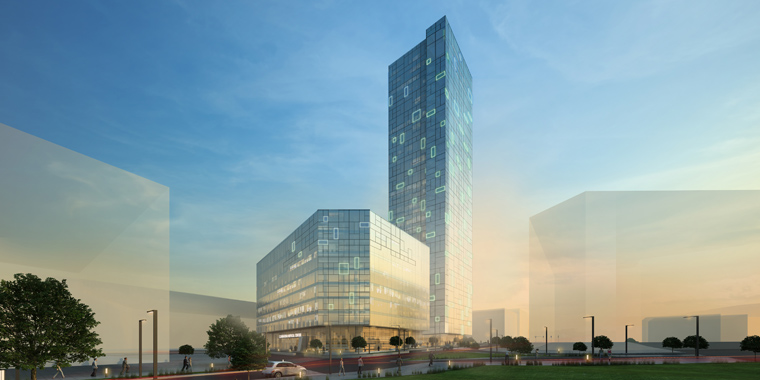We know that our technologies have the power to transform people’s lives. This is especially reinforced in the stories we hear from our customers around the world. Abdali Hospital in Jordan is one of these stories. Nuance’s voice recognition technology has helped the hospital to empower its physicians and provide the best possible patient care during even the most difficult times, such as the COVID-19 pandemic.
Healthcare technology innovations continue to empower physicians, enabling them to achieve the best outcomes for their patients. At Nuance, we’ve had a front row seat to digital transformation for decades; yet the need for continued, even accelerated, innovation has never been more important than it is today. It’s heartening to hear stories from around the globe of innovation happening in near real-time, having positive, profound impacts on people’s lives, wellbeing, and quality of life.
For example, our customer – Abdali Hospital – located in Amman, Jordan holds the firm belief that every human being deserves to live their best life. How they achieve this vision is evident in their exceptional staff and care teams and in the way the hospital’s leadership has prioritized cutting-edge technologies – in combination with compassion and collaboration at every stage of patient care.
Abdali Hospital reflects the latest advancements in medical technology, software and operating systems, and building design—all of which particularly stand out considering that many hospitals in the region still rely on paper-based records systems. Among the many healthcare information technologies they’ve embraced, several Nuance voice-powered solutions are at the heart of Abdali Hospital’s clinical workflows, including Dragon Medical Direct for physicians and PowerScribe 360 for radiologists. When discussing the hospital’s reason for implementing these technologies, the Chief Information Officer Paul Casterton said the main driver was to remove the keyboard from coming in between the physician and the patient to improve relationships.
When the facility was preparing to open its doors to serve patients in September 2019, mere months before COVID-19 shook the global healthcare system, Abdali Hospital sought out a range of healthcare IT solutions that would be easy to use and straightforward. More importantly, according to Casterton, these technologies had to satisfy the requirements of their physicians. That meant implementing solutions that would integrate seamlessly with their clinical and ERP solutions. They needed a solid partner that could build a broader relationship with their team, especially as they looked to the future and the continuous technological advancements that would come. For Abdali Hospital, all roads led to Nuance’s AI-powered, voice recognition platform.
Documentation, Casterton explains, is the “lifeblood of any patient care. The beauty of what we’re doing here at Abdali is that we’re deploying collaboration with voice-powered technologies around the patient medical record, supplemented with complete clinical documentation our physicians can create in real-time with Nuance.” That powerful combination, he notes, is critical not only in terms of adoption but also in maximizing the hospital’s healthcare technology investments.
For effective and efficient implementation, Abdali leadership worked with both Nuance and Certacure Limited, a Nuance strategic partner who has a long-standing history of helping organizations achieve measurable outcomes for both patients and physicians. Ultimately, says Casterton, “We’re delivering the best possible care to our patients. That’s the message: our physicians want and have a hassle-free documentation experience. But more than that, our technology vision and utilization of Nuance’s platforms mean we are able to increase patient throughput, improve quality, and get better analytics to continually improve on all of these points.”
All of this work and investment, of course, contributes to the most important factors in healthcare: changing and improving people’s lives. This is what matters most; not the technology itself, but its ability to help physicians do their best work, achieve the best results for their patients, and live their best lives in and outside of the hospital.







